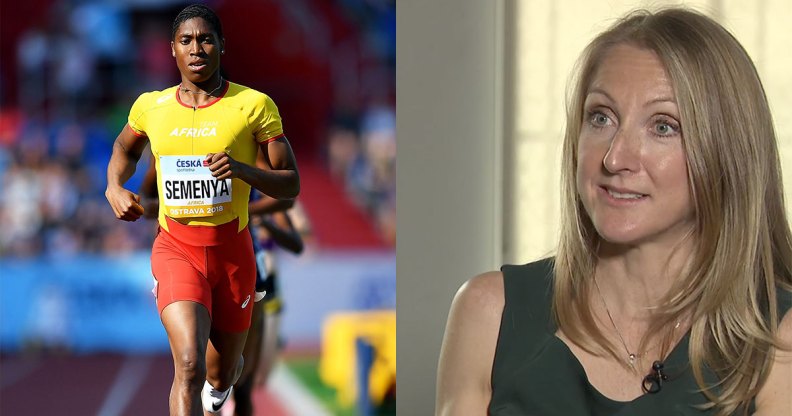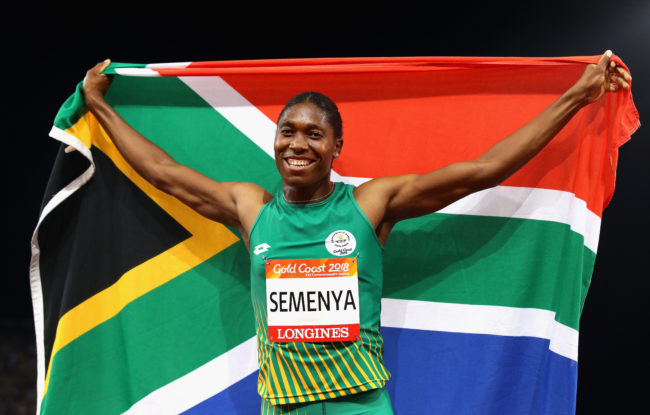Paula Radcliffe: Caster Semenya ruling could bring ‘death of women’s sport’

Caster Semenya and Paula Radcliffe (Getty / Sky News)
Paula Radcliffe has said that a court ruling involving Caster Semenya could hand intersex and transgender athletes an unfair advantage, and ultimately bring about the end of women’s sport.
The Court of Arbitration for Sport (CAS) will soon rule on a case bought forward by Semenya, the South African Olympic gold medallist.
She is challenging proposed new International Association of Athletics Federations (IAAF) rules which would limit testosterone levels in intersex and female athletes with a so-called difference of sexual development (DSD).
Under the regulations Semenya, who has naturally high testosterone levels, would be required to undergo hormone therapy for at least six months before any competition.
The UN has condemned such treatment as an “unnecessary, humiliating and harmful medical procedure.”
Radcliffe has claimed that should Semenya’s appeal be successful, coaches could begin seeking out women with similarly high testosterone levels.
“It would be naive to think if this rule didn’t go through that there aren’t some people out there, managers or federations, who would actively seek out girls with this condition and say: ‘Right, you are going to do this sport and this event so that we can win,'” she told Sky News on Thursday (April 18).
Radcliffe claims rules could give trans women advantage
The former marathon runner also questioned whether transgender women could be handed an unfair advantage.
“Will it open the door up there to transgender athletes actually being able to say: ‘We don’t need to bring our testosterone levels down either, we don’t need to have any surgery, we can just identify how we feel and we can come in and compete in women’s sport?’” she said.
“That would be the death of women’s sport.”
“That would be the death of women’s sport.”
—Paula Radcliffe
The proposed rules have no direct bearing on transgender athletes.
However Joanna Harper, who advises the International Olympic Committee (IOC) on regulations for trans athletes, has told The Guardian that “the IOC is waiting to see what happens in the Semenya case” before announcing testosterone limits for trans athletes in the Tokyo 2020 games.
Radcliffe has previously called for transgender athletes to be excluded from elite sports.
Caster Semenya challenges IAAF rules
The IAAF announced its intentions in April 2018, after its council unanimously approved the plans.
The proposed regulations would only apply to athletes competing in events between 400m and one mile, leading to accusations that they are targeted at Semenya.

Caster Semenya wins gold in the women’s 800 metres final during athletics on day nine of the Gold Coast 2018 Commonwealth Games (Mark Kolbe/Getty Images)
The double gold Olympic medallist announced she would challenge the new limits in June 2018.
“It is not fair. I just want to run naturally, the way I was born,” she said.
“I am Mokgadi Caster Semenya. I am a woman and I am fast.”
“I am Mokgadi Caster Semenya. I am a woman and I am fast.”
—Caster Semenya
After a hearing in February, the CAS was due to announce its decision on March 26. This has now been delayed until “the end of April 2019”, with no specific date set.
Semenya, a lesbian who is married to fellow runner Violet Ledile Raseboya, has long had a fraught relationship with the IAAF.
After winning her first 800m title at the 2008 World Junior Championships in Athletics, she was subjected to “gender verification” tests in 2009. A year later in July 2010, she was cleared to compete.

